
|
MANO PROPERTIES & INVESTMENT INC. |
 

|
|
|
|
PAGES
Home
BioFuel
|
OIL PALM
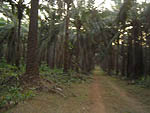
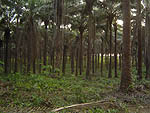
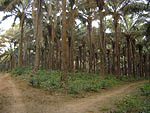
Oil palm grows abundantly in Liberia. Properly cultivated oil palm provides a constant supply of oil for food consumption and also for soap and detergent industries. Like with the rubber also the palm oil can be a profitable venture when involving small scale farmers. It would make much sense to establish a cooperative purchase house where farmers could deposit their yield in consignation to have the cooperation sell it for fair-trade ongoing market prices. Oil Palm is an ideal crop for the production of biogas and bio-benzene and can be sold to refineries in Europe and the USA or refined in Africa for domestic use. Biogas from palm oil, sugar cane and corn are successfully used as additive to normal gas. It can be mixed without any negative side effect and the polluted emission of biogas is 0%. MPI has been mandated to sell a 70,000 acres well maintained Oil Palm Plantation in the Mano River Basin. Interested parties are invited to forward a serious bid.
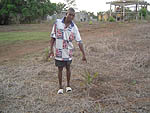

In the West Africa Mano River Basin MANO PROPERTIES & INVESTMENT INC. has been granted mandates and rights to redevelop existing fertile lowland oil palm plantations with a lot of small swamps- one (1) million hectares. The development-rights are for a period of 99 years with option to renew. Under the relevant agreement, MPI will pay an annual lease. In return, all proceeds from the plantations will belong to MPI. The acquisition represents a unique opportunity to participate upstream in a highly profitable sector of the palm oil/biodiesel value chain. Socially, the farmers are mostly subsistence with some trading with coastal fishers. They grow cassava mostly for trade, but this doesnt produce enough revenue to cover living expenses for an entire year. Oil palm is a valuable economic crop that will provide a major source of employment. It allows many small landholders to participate in the cash economy and also results in the upgrade of the infrastructure (primary schools, roads, medical centers, sanitary facilities, telecommunications) within that area. MPI developed a (replant) program to start with the development of two (2) plantations, 100,000 acres (40,000 hectares) each, with high yield Hebrides producing 9 tons of palm oil crops per hectare (136 trees), or 10.4 tons with 156 trees per hectare. 40,000 ha will include over 5.5million oil palm trees spread over a radius of 30 km, creating a secured income for 75,000 people. Required processing facilities comprise some 60mt per hour fresh fruit bunch palm oil mills, 45mt/day palm kernel mills and 200mt/day refinery and fractionation plants. The planting material could produce a yield of 16 tons/ha in the first year of harvesting, subsequently increasing to 35-38tons/ha in the 5th year of harvesting. The growing popularity of palm oil has been condemned by some conservationists from the West who see rainforest being given over to palms, mainly in Malaysia and Indonesia, with an appreciable loss in biodiversity. The push to plant more trees is easy to explain: palm oil is by far the most productive oil and energy crop and brings nearly instant profits to millions of small farmers and estates alike. Palm oil is one of the few sectors that bring social and economic development to poor communities in a straightforward way. Palm oil producers for their part are fighting the conservationists, accusing the West of hypocrisy for criticizing their production while overlooking the fact that Europe and the US chopped down their own forests and destroyed biodiversity ages ago, a practice that allowed them to develop and modernize in the first place. Conservationists dictate poor countries how not to develop, but don't offer any credible alternative. China has ambitious plans to make biofuels account for 15% of the nations transport fuels by the year 2020. The Chinese Ministry of Finance is reportedly developing a risk sharing mechanism to cover biomass producers, and give them a buffer in case oil prices plunge again. |
LINKS
Guinea
African Art
|
|
|